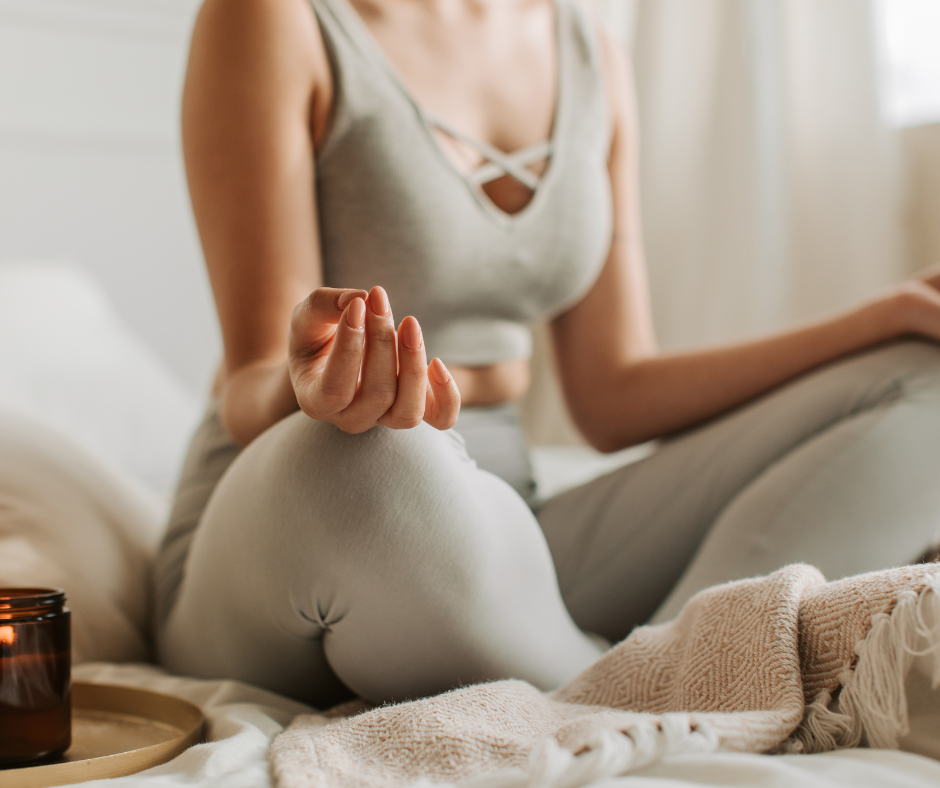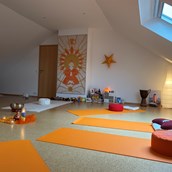Depression and depressive moods are now widespread in our society and are one of the most common illnesses in the Western world. After this diagnosis, those affected are often immediately prescribed antidepressants or psychotherapy, although the waiting times are often very lengthy. Other, alternative forms of therapy such as yoga are often not even considered, especially not in traditional medicine.
In this article I examine the question of how well yoga really helps as an alternative measure against depression and which yoga exercises are best suited.
What is depression?
Depression is an illness that causes persistent feelings of sadness, listlessness, low self-esteem and disinterest in daily life. It can lead to severe emotional and physical problems. Those affected often feel guilt and self-pity because of their illness.
Depression can develop due to a variety of causes, from personal or professional disappointments to strokes of fate, a previous serious physical illness and much more. The disease can be caused by both sudden and long-term factors. So depression is more than just being a little stressed or worrying about something every now and then.
The coping mechanisms for this mental illness are different for each sufferer. For example, some people recover more easily from severe emotional lows due to their greater resilience, while others lack this inner resilience for difficult times.
The symptoms of depression can also manifest themselves in very different ways. Common symptoms include an inability to process negative thoughts and not let them overwhelm you, suicidal thoughts, and more.
Other symptoms of depression can include:
- Problems making simple decisions or concentrating on tasks
- Distrust of other people
- A persistent feeling of worthlessness and hopelessness
- Feelings of guilt or shame
- Loss of interest in activities you once enjoyed
- Insomnia or too much sleep
- Fatigue and general loss of vitality and energy
Depression is much more common than most people think - but unlike physical illnesses, it is not visible at first glance, which is why it is often easier to hide.
If you work as a yoga teacher yourself, it is very likely that one of your course participants also suffers from this condition. So if you are well informed about this clinical picture and understand how yoga can help against depression, you can effectively support your students on the path to healing or at least improvement.
Even if you are not a yoga teacher but someone affected by depression yourself, this article can give you an overview of whether yoga is a good alternative to classic medication treatment or psychotherapy for you.
But what are the causes?
Several factors can play a role in the development of depression:
- Biochemistry: Differences in neuro-hormonal chemicals, your neurotransmitters, in the brain may contribute to the symptoms of depression.
- Genetics: Depression can be inherited. If an immediate family member has depression, your risk of developing it at some point in your life is increased by 50-70%.
- Personality: People with low self-esteem who are vulnerable to stressful circumstances are at higher risk of developing depression.
- Environmental factors: Those who are constantly exposed to violence, neglect, physical or emotional abuse may be more susceptible to depression.
- Lifestyle factors that promote the occurrence of depression
Our often stressful modern lifestyle makes it necessary to multitask and do several things at once in order to fit everything together. The job, the family, the friends, the household, the hobbies - every area of life requires our attention and often best of all at the same time. It's no surprise that many of us become overwhelmed and burnt out over the long term.
A poorly planned daily routine and disorganization usually lead to poor eating habits and too little or poor sleep. This leads to an imbalance in the energy centers of the body and mind, which are out of balance due to a hectic lifestyle. This is becoming more and more noticeable physically: the heart rate and blood pressure constantly fluctuate under pressure and internal tension.
Dissatisfaction also gradually increases at work and in interpersonal relationships due to constant stress. In the next step, inner unrest and restlessness and aimlessness arise as a result of our inner imbalance. If you cannot recover sufficiently from this chronic stress, it quickly affects your mental health and illnesses such as depression can result.
The severity of depression depends on the severity and duration of the recurring episodes that are typical of the disease. Whenever you experience an episode of intense negative thoughts, the impact on your physical and mental health and self-image also increases. In order to recover from such episodes, you need to specifically regenerate your mind and find strategies for counteracting the causes and symptoms.
Appropriate medication can of course regulate your behavior and habits to a certain extent. But in order to develop positive habits, you need a lot of perseverance in order to eliminate the causes and regain balance. If you are looking for an alternative to medication, yoga has proven to be an effective method that brings your nervous system into balance and keeps your body and mind young and healthy.
Yoga for depression

Depression is one of the fastest-spreading illnesses worldwide - and the numbers continue to rise, especially in times of uncertainty and upheaval. The World Health Organization (WHO) estimates that around 264 million people of all ages worldwide currently suffer from depression. Women are even more likely to suffer from depression than men. The consequences are often serious, because in the worst case, depression can even lead to suicide. According to statistics, it is the second most common cause of death in 15 to 29 year olds [8].
There are now many treatment options for treating depression, also because this clinical picture is becoming more and more common. Therapy or counseling in particular will help you solve the underlying problems or at least make you aware of them. The controlled administration of medication also means that your brain's neurohormones are controlled to a certain extent and therefore your mood. But many doctors have also discovered yoga as a further measure against depression in their professional practice due to the desire for alternative treatment methods.
And this has been scientifically proven, as many studies and clinical investigations have shown that yoga is actually an effective way to cure depression. By regularly practicing yoga, the balance of body and mind can be restored - for example through a yoga class in a studio you trust, at your local adult education center or online. This combination of yoga, ideally also meditation and psychological treatment improves your brain chemistry and strengthens your body.
Neurological benefits of yoga
The so-called neurotransmitters in the brain play an important role in changing your behavior and mood swings.
An important neurotransmitter is gamma-aminobutyric acid (GABA). It plays a big role in reducing neuronal excitability in your nervous system. For this reason, stress and depression are often associated with (too) low GABA levels.
This is where the benefits of yoga come into play: A 2007 study showed that GABA levels in yoga practitioners increased by an average of 27% during an hour of asana practice. However, there was no increase in the control group who practiced other relaxing practices and activities.
A follow-up study in 2010 also showed that even novice yoga practitioners experienced a large increase in the neurotransmitter GABA, which was associated with reduced anxiety and stress and improved mood.
Yoga and the nervous system
In order to keep your nervous system balanced, you must constantly consciously work on this state. This biological state of balance is called homeostasis in medicine. Through regular yoga, you become more aware of your inner energy centers and in their entirety, which makes it easier to regulate your nervous system.
In a physically or mentally challenging situation where brain waves are activated, a healthy body can restore and maintain homeostasis with ease. However, sometimes severe psychological stress requires additional support to bring your energy levels back to normal.
Sympathetic and parasympathetic nervous system
The two branches of the autonomic nervous system, the sympathetic and the parasympathetic, control homeostasis simultaneously and, so to speak, in complementary teamwork:
The sympathetic nervous system (SNS) is stimulated when we are in a dangerous situation or feel in danger.
Aside from external and psychological triggers, your sympathetic nervous system is also activated when you use your muscles or breathe harder, for example when exercising. More demanding, dynamic yoga asanas for greater strength trigger your sympathetic nervous system.
The parasympathetic nervous system (PSNS), on the other hand, has a relaxing and calming effect on the entire body and brain.
Light yoga exercises and slow, conscious breathing activate your parasympathetic nervous system and have a calming effect on your psyche.
Inthis article you will find out which yoga asanas and breathing exercises are particularly helpful for depression.
Andreas from the Palatinate , who himself was affected by anxiety and depression for years and wants to encourage other sufferers through his stories. You can find more information, experience reports and exercises in his blog www.meinwegausderangst.de
-------------
Interested in yoga? Then look for a yoga class near you. On Find Your Yoga, over 5,000 yoga teachers introduce themselves and their yoga - there is definitely a suitable teacher for you. Let's go!











.png)